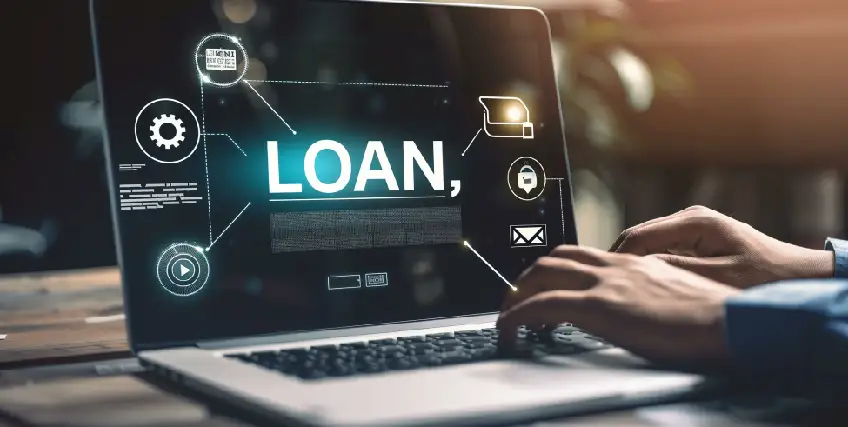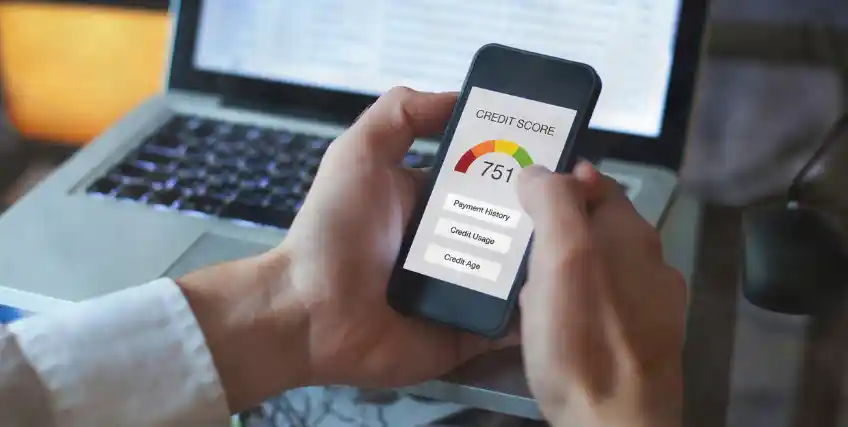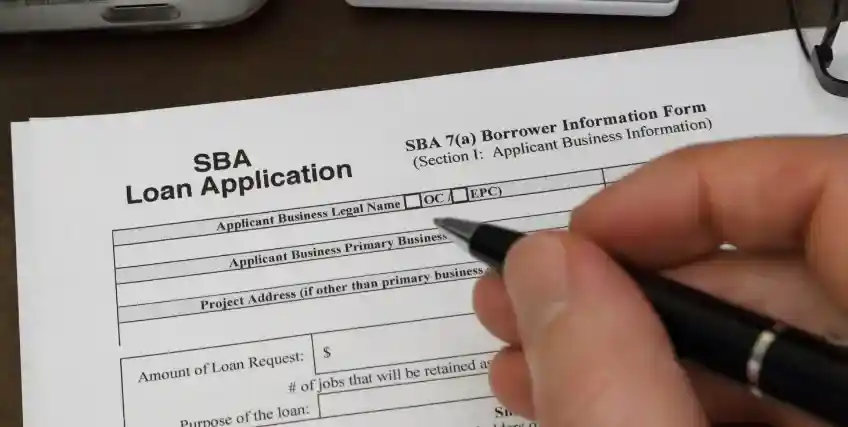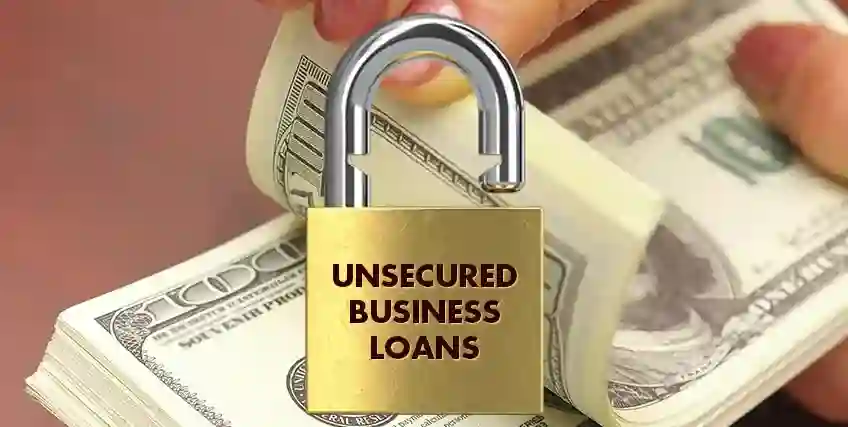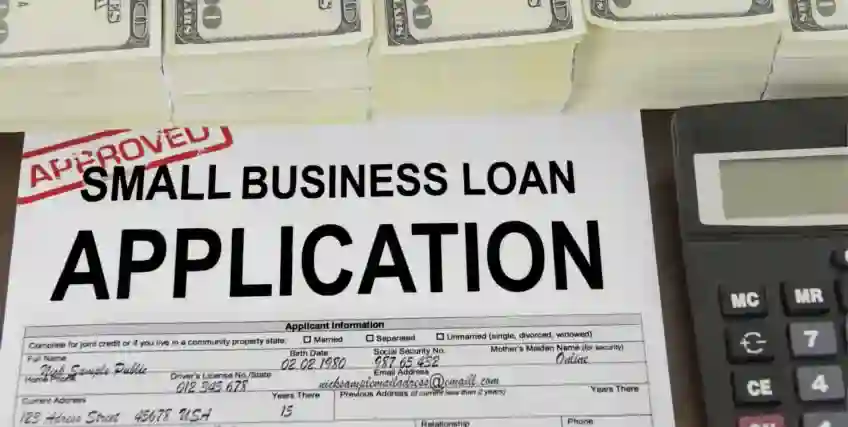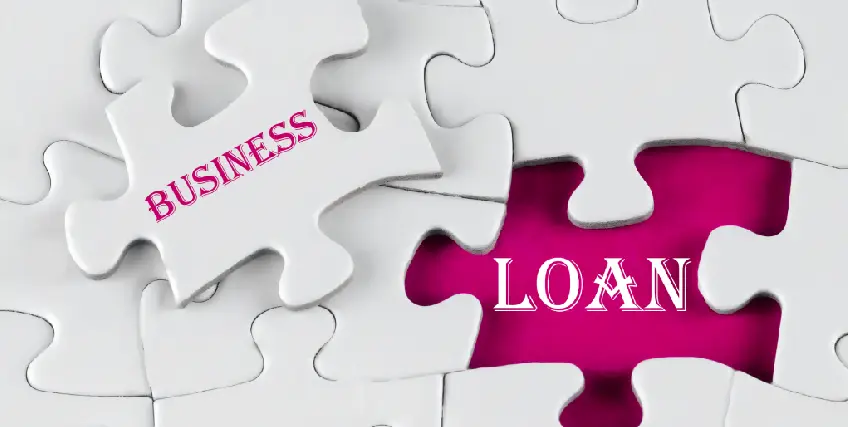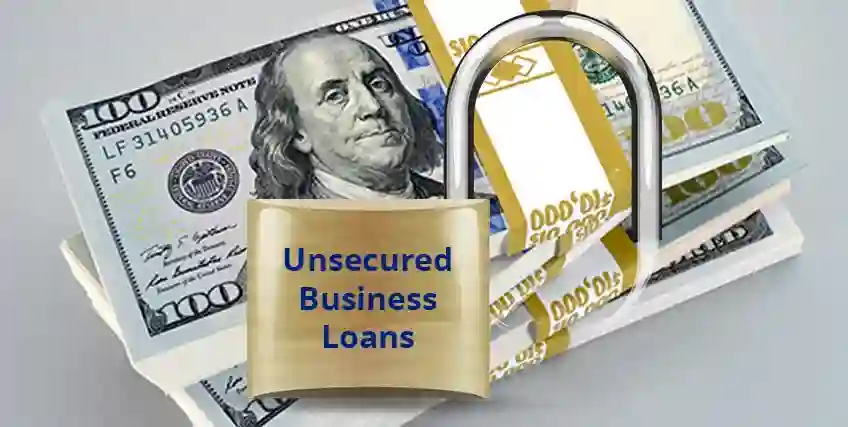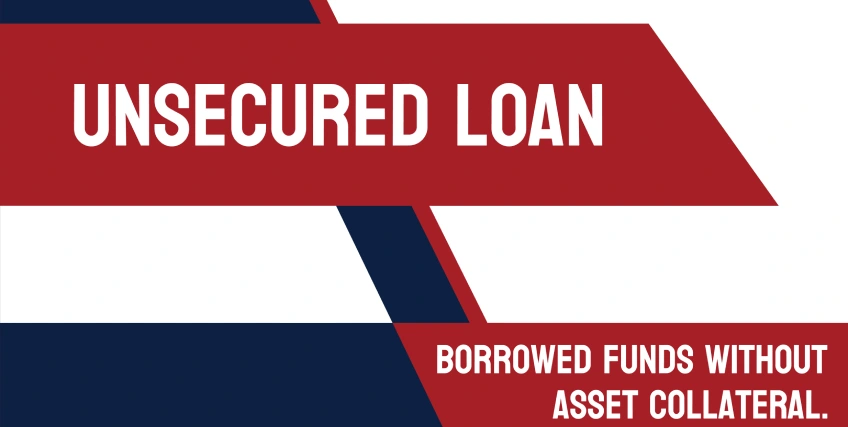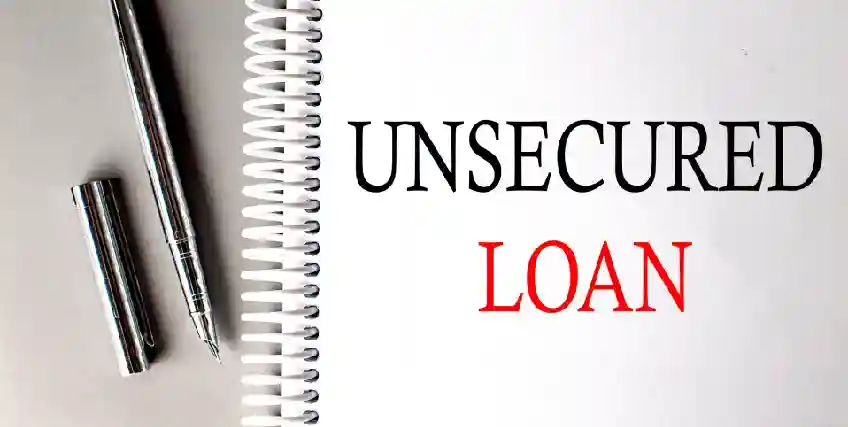Unsecured Business Financing:
Collateral-Free Loans for Small Businesses.
Looking for Business Financing?
Apply now for flexible business financing. Biz2Credit offers term loans, revenue-based financing, lines of credit, and commercial real estate loans to qualified businesses.
Set up a Biz2Credit account and apply for business financing.
Unsecured business financing offers small business owners fast, flexible access to capital—without the need to pledge business assets. Whether you're launching a startup, expanding operations, or managing day-to-day expenses, unsecured loans for business can provide the support you need with minimal documentation. Since these loans don’t require collateral, they can be processed with a faster approval timeline. This makes them ideal for business owners looking to seize opportunities quickly. On this page, you’ll find everything you need to know about unsecured business financing, from how it works and how to qualify, to its benefits, risks, and types.
Understanding Unsecured Business Financing
Unsecured business financing refers to funding that doesn’t require borrowers to pledge real estate or other business assets as collateral. Lenders evaluate the credit score, business plan, and financial records, such as tax returns and business checking account statements. Because the lender assumes more risk, the interest rates tend to be higher, and the repayment terms shorter. However, this type of business financing offers flexibility for those who can’t (or prefer not to) use collateral. From startups to growing enterprises, unsecured business financing provides small business owners with quick capital access through a lump sum or unsecured business line of credit.
How Do Unsecured Business Loans Work?
Unsecured business financing works by offering funds based on a borrower’s financial health rather than secured collateral. After completing an application and required disclosures, lenders evaluate credit score, annual revenue, and sometimes your business credit score or business plan. Upon credit approval, you may receive a lump sum or gain access to an unsecured business line of credit. Repayment typically begins immediately, with monthly payments over 6 to 36 months. These loans may carry higher interest rates and often include origination fees. While there's no collateral involved, a personal guarantee may still be required. For small business owners needing working capital or short-term funds, unsecured business financing can be a more accessible option than traditional SBA loans.
What Do You Need to Qualify for an Unsecured Business Financing?
Understanding the requirements for unsecured business financing is essential for small business owners seeking fast capital without tying up business assets. Because these loans are not backed by collateral, lenders rely heavily on evaluating your creditworthiness, cash flow, and other financial indicators. Here are the key factors that influence your ability to qualify:
01 Personal and Business Credit Scores
Lenders assess both your personal credit and business credit score when reviewing applications for unsecured business financing. A strong FICO score and healthy credit history reflect your ability to manage debt responsibly, which directly affects credit approval. While most lenders look for credit scores above 600, some offer unsecured business loans for bad credit, though expect higher interest rates and tighter credit limits. Building your business credit score can expand your eligibility and improve your repayment terms.
02 Annual Revenue and Cash Flow
Your annual revenue and cash flow are critical to proving your business can handle the monthly payments that come with unsecured business financing. Lenders want assurance that your business generates consistent income, especially if you're applying for larger loan amounts. Businesses applying for unsecured business loans for new businesses may need to provide financial projections and a strong business plan to validate future revenue potential.
03 Business Age and Operational History
Though some lenders offer unsecured business loans for new businesses, many still prefer applicants who have been operational for at least six months to a year. A longer business track record makes it easier for lenders to evaluate your eligibility, financial patterns, and overall creditworthiness. Younger businesses should be ready to show detailed disclosures, tax returns, and possibly a personal guarantee.
04 Bank Statements and Business Checking Accounts
Many lenders require access to your business checking account to review cash flow patterns, deposits, and account stability. Solid banking history improves your credibility and enhances your chances of qualifying for unsecured business financing. Some lenders may even integrate with your online banking platform for real-time data, speeding up the approval process and ensuring accurate disclosures.
05 Business Plan and Purpose of the Loan
Lenders want to know how you plan to use the funds—whether it's for working capital, inventory, or expansion. A well-documented business plan helps justify your loan amount and shows how the funding will support business needs. This is especially important for those pursuing unsecured corporate loans or applying as a startup. Clear goals and repayment strategies often lead to faster approval.
06 Legal and Financial Disclosures
Be prepared to submit various disclosures, including tax returns, licenses, and financial statements. These documents help lenders confirm your business's legitimacy and assess risk. Transparency during the approval process increases the likelihood of securing unsecured business financing, even if you're applying for an unsecured commercial loan or looking for unsecured loans small business borrowers can access with ease.
Benefits of Unsecured Business Loans
No Collateral Required
One of the most attractive features of unsecured business financing is that it does not require business assets or real estate as collateral. This makes it particularly useful for small business owners who may not have significant assets but still need immediate funding for working capital, payroll, or growth initiatives. Unlike a secured business loan, you retain full control over your assets while still gaining access to a flexible type of loan that supports your business needs without unnecessary risks.
Faster Approval Process
Since there's no need for asset valuation or legal filings, the approval process for unsecured business financing is significantly quicker. Many lenders, especially those offering online banking services, can approve applications quickly as compared to other loans. This speed is crucial for responding to urgent financial demands or seasonal opportunities. If your business credit score, cash flow, and tax returns are in order, you’re more likely to receive faster approval, especially when applying for a business credit card or short-term term loan.
Flexibility in Use of Funds
Unsecured business financing provides flexibility in how the borrowed funds are used. Whether it’s expanding inventory, hiring staff, or covering rent, you’re not limited by lender-imposed restrictions. For startups and newer ventures, this is ideal, particularly when pursuing unsecured business loans for new businesses where business plan execution varies. Flexible use allows the borrower to manage shifting priorities without delays.
Builds Business Credit Profile
Successfully managing unsecured business financing helps boost your business credit score, as it helps build credit if the lender reports to credit bureaus, which not all lenders do. A good credit score is vital for future loan options or negotiating better unsecured business loan rates. Timely monthly payments on your unsecured loans small business account can demonstrate financial responsibility to lenders, improving your chances for more favorable repayment terms or transitioning to SBA loans in the future.
Access for Low or Bad Credit Borrowers
While challenging, obtaining unsecured business loans for bad credit is possible. Some lenders specialize in working with low credit score borrowers and may offer funding based on strong cash flow or annual revenue. Although higher interest rates and lower loan amounts are common, it can serve as a crucial bridge to reestablishing creditworthiness. This can be especially helpful for small companies in states like California, where financing demand is high.
No Risk to Personal or Business Assets
With unsecured business financing, there’s no immediate risk of losing your personal credit standing or business assets if you default, though a personal guarantee may still apply. This setup is particularly beneficial for businesses lacking the safety net of valuable collateral. The absence of repossession risk can help business owners operate with peace of mind while still pursuing aggressive growth.
Drawbacks of Unsecured Business Loans
Higher Interest Rates
One of the most notable downsides of unsecured business financing is the potential for higher interest rates. Since these loans are not backed by business assets, lenders consider them riskier and charge accordingly. For small business owners with limited credit history or bad credit, this can mean significantly more expensive monthly payments over the life of the loan. When compared to secured business loans or traditional SBA loans, this cost difference can impact your cash flow and overall profitability.
Smaller Loan Amounts
Because there’s no collateral involved, lenders often limit the loan amount they’re willing to extend through unsecured business financing. This can be a challenge for business owners who require substantial capital for large-scale expansion or purchasing inventory. It also limits the effectiveness of unsecured corporate loans for mid-sized companies with more complex business needs. Borrowers may have to combine multiple financing options or apply for an additional business line of credit to meet their funding goals.
Shorter Repayment Terms
The repayment terms for unsecured business financing are generally shorter, often between 6 to 36 months. While this may benefit lenders by reducing risk exposure, it puts pressure on borrowers to generate higher short-term returns. Shorter terms mean higher monthly payments and less breathing room for startups or seasonal businesses. If you're considering unsecured business loans for new businesses, you’ll need a solid business plan and reliable cash flow to manage repayments without strain.
Personal Guarantee Requirement
Even though unsecured business financing doesn’t require collateral, many lenders still ask for a personal guarantee. This means your personal credit and assets could be at risk if the business defaults. It undermines the safety net for small business owners who believed that unsecured meant zero personal liability. For those with strong business credit scores but limited personal reserves, this can become a serious consideration.
Stringent Credit Requirements
While unsecured business loans for bad credit are technically available, they often come with trade-offs: smaller loan amounts, restrictive repayment terms, and steeper interest rates. Most lenders prefer applicants with high credit scores, detailed disclosures, and robust tax returns. This makes qualifying more difficult for startups or unsecured loans small business applicants without a proven financial track record. The approval process can still be rigorous even without collateral.
Increased Risk of Overleveraging
Because unsecured business financing is easier to obtain quickly, some borrowers may take on more debt than their business can handle. Without a careful review of existing credit limits and cash flow, overleveraging can lead to missed payments and damaged credit history. This risk is particularly high when combining multiple business credit cards or cash advance loans.
Benefits |
Drawbacks |
01 No collateral required |
01 Higher interest rates |
02 Faster approval process |
02 Smaller loan amounts |
03 Flexible use of funds |
03 Shorter repayment terms |
04 May help build business credit |
04 Personal guarantee may be required |
05 Accessible for bad credit borrowers |
05 Stricter credit requirements |
06 No risk to assets upfront |
06 Risk of overleveraging |
Types of Unsecured Business Financing
Term Loans
Term loans are among the most common forms of unsecured business financing. These provide a lump sum upfront which the borrower repays in fixed monthly payments over a set repayment term. Since there’s no need to pledge business assets, these loans are ideal for small business owners who need immediate access to cash without the delay or paperwork involved in securing a secured business loan. However, interest rates can be higher, especially for those with bad credit or limited business credit score history.
Business Lines of Credit
An unsecured business line of credit offers flexible capital access, allowing you to draw funds up to a certain credit limit as needed. Interest is charged only on the amount used, not the entire limit, making it ideal for managing cash flow fluctuations or unexpected expenses. Many small business owners prefer this type of loan for short-term working capital needs. Approval often depends on credit score, annual revenue, and banking history, and a personal guarantee may still be required.
Merchant Cash Advances (MCA)
Although technically not a loan, MCAs fall under unsecured business financing. A lender advances a sum based on your daily credit card sales or future revenue, which is repaid through a percentage of daily sales. This cash advance model offers faster approval but can come with extremely high interest rates. It’s commonly used by startups or unsecured loans for small business applicants with bad credit who can’t qualify for traditional lending. However, repayment can strain cash flow.
Invoice Financing
Invoice financing or factoring allows business owners to receive immediate cash by selling outstanding invoices to a third party. It’s a form of unsecured business financing that helps bridge the gap in cash flow without pledging collateral. It’s especially helpful for small businesses with reliable B2B clients but slow-paying accounts. Your eligibility depends on the creditworthiness of your clients rather than your own credit score, making it attractive for newer ventures.
Business Credit Cards
Business credit cards are a revolving line of unsecured business financing perfect for managing recurring expenses like supplies, travel, and utilities. They help separate personal and business finances while also building your business credit score if used responsibly. Although interest rates can be high, some cards offer fixed rate options, cashback, or rewards. For small business owners with no collateral and varied expenses, a business credit card offers unmatched flexibility and convenience.
Is Unsecured Business Financing Right for Your Business?
Deciding whether unsecured business financing is the right fit depends on your business goals, financial profile, and appetite for risk. If your business lacks real estate or other business assets to pledge as collateral but maintains strong cash flow and a reasonable credit score, this financing route can be a viable option. It’s especially beneficial for small business owners, startups, and entrepreneurs who need faster approval for urgent funding needs.
However, there are trade-offs. The convenience and speed of unsecured business financing come with higher interest rates and shorter repayment terms. You’ll likely be required to sign a personal guarantee, which means your personal liability is still in play.
If you're seeking funding for recurring expenses, managing seasonal dips in revenue, or making strategic growth investments, unsecured business financing - whether through a business credit card, unsecured business line of credit, or term loan - can be a flexible and quick solution. For businesses in early growth stages or with fluctuating cash flows, exploring unsecured business loans for new businesses or unsecured business loans for bad credit may offer a critical financial bridge.
Ultimately, assess your eligibility requirements, weigh all available loan options, and choose the financing path that aligns with your current and future business needs.
Unsecured Business Loan Articles
Why Unsecured Loan Applications are a Modern Alternative to Emergency Funds
Owning and operating a small or medium-sized enterprise in America can often require...
Why Speed Matters for Unsecured Loans Small Business
Small businesses run on timing. Their revenue does not always arrive when expected.
SBA Loan Unsecured vs. Credit Card: The Cost Comparison for Startup Capital
Startup founders often seek flexible financing options in the early stages of their business.
How Unsecured SBA Loans Support Startups with Limited Collateral
Budding entrepreneurs in the United States often launch their startups with passion, ideas, and ambition.
The Smart Way to Borrow: Understanding Unsecured Company Loans
Business operations in the United States demand constant decision-making from planning to managing day-to-day challenges.
Business Unsecured Loans: Leveraging Creditworthiness for Funding
Reliable access to funding is a necessity for every entrepreneur running a small business.
How to Use Unsecured Lines of Credit Without Falling into Debt
In today’s unpredictable economy, small business owners and freelancers need flexible ways to manage cash flow.
Common Mistakes to Avoid When Applying for Unsecured Loans Online
With the rise of small businesses in today’s fast-moving world, there are many small business owners encountering difficulties
How to Qualify for the Best Unsecured Loans Without Collateral
As a business owner, securing funding can be one of the most important decisions you make. Whether it’s for home improvement projects
Unsecured Small Business Lending in a High-Interest Rate Environment: Is It Worth It?
In 2025, business owners face an evolving lending landscape marked by persistently high interest rates, especially impacting unsecured small business lending.
Credit Scores and Unsecured Business Lending
A good credit score is one of the most important criteria when a small business owner seeks business financing. Especially when it comes to unsecured small business loans
8 Compelling Reasons to Choose an Unsecured Business Loan
There are pros and cons of every financial product, and unsecured business loans are no different.
Top 7 Industries That May Benefit from Unsecured Business Loans in 2026
While there are many benefits to unsecured business loans, these types of loans aren’t right for every business or situation.
A Step-by-Step Guide to Qualify for an SBA Unsecured Business Loan
Unsecured small business loans are lending facilities that don’t require collateral. While secured business loans require a borrower to provide
How SBA Unsecured Business Loan Supports Small Businesses During Economic Challenges
As a small business owner, you put your blood, sweat, and tears into what you built. The journey is rewarding, but it’s not without major risks.
5 Benefits of Unsecured Business Loans
Unsecured business loans can help small business owners access funding without putting any collateral on the line.
Manage Debt for Your Small Business: Debt Consolidation vs. Refinancing
Business owners consolidate business debt for several reasons, not simply for financial relief. Some businesses use debt consolidation
Should You Apply for Unsecured Loan or Business Line of Credit? A Comparison for Entrepreneurs
Small business owners often need to balance a range of financial priorities, such as managing credit card debt, upgrading equipment
Unsecured Business Loans: Busting Myths and Uncovering Hidden Truths
Whether you’re trying to take advantage of an opportunity or experiencing a seasonal slowdown, business owners need money from time to time.
6 Tips to Get Approved for Unsecured Business Funding
If you’re looking to get your startup or small business off the ground, you might not have the business assets to swing it.
Calculating Your Debt Service Coverage Ratio
When applying for a small business loan, you’ve probably heard the terms “debt service coverage ratio” and “debt to income ratio.”
Unsecured Loans for Good Credit What They Are and How They Work
Unsecured personal loans for good credit individuals are among the most accessible financial products out there
Understand the impact of an unsecured personal guarantee on a business loan
Loans are a great financial tool for small business owners wanting to start or grow a business.
Four Steps to Understanding Unsecured Business Loans
Many people think of business loans in the more traditional sense: A company needs money for a specific reason
Unsecured Business Loan vs. Credit Cards Which Is Better for Your Business
Credit card processing allows businesses to accept payments from customers using credit and debit cards.
How to Get an Unsecured Business Loan?
Whether you need to improve your cash flow or you’re ready to grow your business, getting outside funding can be a solution to your problem.
Age Limits for Unsecured Loans: What You Need to Know
Unsecured personal loans are one of the most sought-after financial products, offering a means of borrowing money without the need to provide collateral.
Consequences of Not Paying Back an Unsecured Business Loan: What Borrowers Need to Know
Business loans provide entrepreneurs with the financing necessary to start, grow, or acquire a business and cover all of their related expenses along the way.
How Tech Startups Secure Unsecured Loans Without Putting Up Assets
In this economic landscape, it is hard for most startups to get the financing they need. It is particularly difficult as startups lack
Top Fintech Trends Transforming Unsecured Business Lending
Financial technology or fintech is transforming the unsecured lending landscape. According to the Federal Deposit Insurance Corporation (FDIC )
How Much Can You Borrow with an Unsecured Business Loan? Key Factors Explained
The cycle of business is full of ebbs and flows. To keep everything running smoothly in the down times, you might need financing to help with cash flow
Is a small business loan from a bank secured or unsecured
Many small businesses will eventually need an influx of capital. Whether it’s to take advantage of a business opportunity, invest in growth
5 Signs Your Business Is Ready for an Unsecured Business Loan
Being a small business owner means constantly juggling day-to-day operations and long-term goals. With so much going on in your immediate timeline
Different Ways to Borrow Unsecured Business Loans After Retirement
For some people, retirement is a chance to catch up on their reading, travel the world, and play a little golf. For others, it’s an opportunity
What happens if you default on an unsecured business loan
Many small businesses seek out financing to fuel growth or navigate financial challenges. For many entrepreneurs, business loans can be a
Unsecured Business Loans for Gig Economy Entrepreneurs: A New Frontier
Thanks to the convenience and simplicity of online lending, many small business owners are now getting a business
Secured vs Unsecured Loans: What’s the Difference and Which Is Right for You
People who prefer personal loans would always select from the two loan options which are secured and unsecured personal loans.
FAQs for Unsecured Loans
1. Can I get an unsecured business loan with bad credit?
There are unsecured business loans for bad credit, but they often come with higher interest rates, lower loan amounts, and more restrictive repayment terms. Some lenders focus on your cash flow, monthly payments, and business plan rather than just your credit score. It's important to compare loan options and understand any personal guarantee requirements.
2. Do I need to provide personal guarantees?
Even though unsecured business financing doesn’t require collateral, many lenders will require a personal guarantee. This means your personal credit and assets could be affected if the loan goes into default. Be sure to review the lender’s disclosures and repayment terms carefully before signing.
3. What are my options if I’m denied an unsecured loan
If you're denied unsecured business financing, you might still qualify for secured business loans, SBA loans, or alternative financing options like merchant cash advances, invoice financing, or business credit cards. Improving your credit score, documenting stronger cash flow, or adjusting your loan amount request can also increase your chances of approval in the future.
4. What are examples of unsecured financing?
Common examples of unsecured business financing include term loans, business credit cards, unsecured business lines of credit, merchant cash advances, and invoice financing. These options are offered without requiring collateral but are approved based on credit score, cash flow, and other indicators of creditworthiness. Whether you're a startup or an established company, these options offer flexibility to meet short-term business needs.
5. What are the risks of unsecured business financing?
The biggest risks of unsecured business financing are higher interest rates, smaller loan amounts, and the likelihood of needing a personal guarantee. Without business assets to secure the loan, lenders mitigate their risk by charging more and shortening repayment terms. This can place pressure on your cash flow and expose your personal credit in the event of default. Overborrowing also increases the risk of financial strain or missed monthly payments, especially for small business owners and startups with irregular income.
Frequent searches leading to this page
Term Loans are made by Itria Ventures LLC or Cross River Bank, Member FDIC. This is not a deposit product. California residents: Itria Ventures LLC is licensed by the Department of Financial Protection and Innovation. Loans are made or arranged pursuant to California Financing Law License # 60DBO-35839





